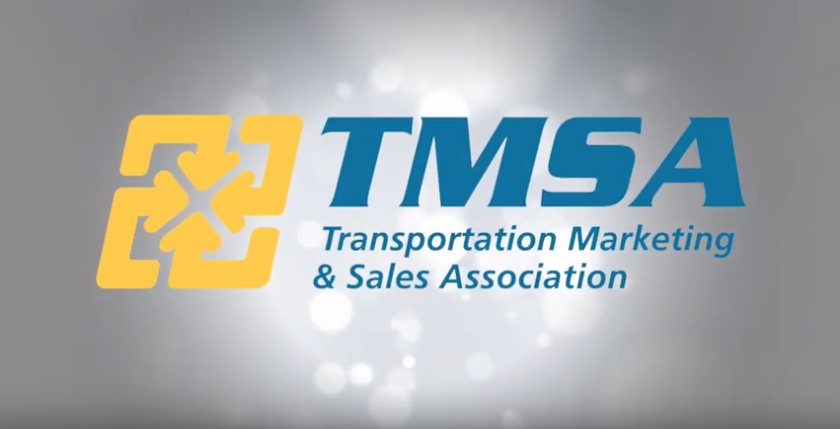
Written By: Tom Craig | Mar 4, 2016 12:00:00 AM
By Tom Craig, President of LTD Management, a supply chain  and logistics consulting firm.
and logistics consulting firm.
Reverse outsourcing. Cutting out the middle man. Not using the usual suspects. These are what shippers—retailers, manufacturers, and others—are doing. At the same time, 3PLs and logistics service providers (LSPs) are dealing with and competing in a commoditized industry where price is the key differentiator.
The What / The Driver. The initiatives for these actions come from Amazon. They are a US $100billion retailing and e-commerce corporation.
They began selling eaches years ago direct to customers, such as individual books, when everyone else moved cases of products to stores to stock shelves. Now they are a company that has gone beyond a paradigm shift to driving global mega trends in retailing, supply chain management, and logistics. Amazon dominates e-commerce and is in B2C retailing and B2B with its wholesale business.
Some of the actions they have and are taking include:
Amazon sees things very differently. They are doing their own logistics, not always turning over their logistics to providers, especially big-name providers. And given their size and global status, these actions are noticed.
Their supply chain drives changes in their logistics to support its order immediacy which is #1 in the world. Many miss this. Other impacts are second. And this is why they keep separating themselves from other retailers and logistics providers. They know what is important.
Providing planes and being a freight forwarder give them control—even chain of custody—in the movement of Amazon products. That translates into compressed time and inventory velocity—two key needs for order immediacy.
The Why / Questions. Begin with the operating reality of 50% customer turnover for 3PLs and LSPs. This is against a background that much logistics selection is based on low price, making a commoditized industry. Add in that some retention reflects customers not wanting to go through the work of making a change—not because of high customer satisfaction.
Changes are not limited to Amazon. E-commerce firms in China—a very large online market--are building up their own capabilities. Uber is getting into e-commerce deliveries; so is Google Express. Ralph Lauren made the decision to stop using a warehouse managed by a 3PL and to bring it into its own distribution center. Are these random events? Or, are they the beginning of a logistics change—and a wake-up call for logistics providers?
E-commerce and its retail omnichannel are bringing in a new era and breed of logistics providers that can help bring the customer experience. What they will do, how they will do, and why is changing. The questions are how it will change and what will providers do to adapt—or not.
There is another elephant in the room—Amazon. What if Amazon moves past providing transport service for itself and opens to providing services to other companies? They would have a competitive advantage. They know the shipper perspective because they are a shipper.
The How / What does it mean? How firms manage their supply chains and who they deal with as logistics providers is transitioning. The supply chain for immediacy is very different than the ones that have been used for standard retailing and manufacturing. And this difference extends through the entire supply chain, from suppliers through to customers.
There is a shift to focusing on the supply chain to drive omnichannel and away from looking at logistics functions as standalone activities. That increases the requirement for integration, time compression, and inventory velocity, linked with extending the supply chain upstream.
Retailing omnichannel means many smaller and faster shipments to many customers. That is different from truckload deliveries to stores. This is having global impact with e-commerce and omnichannel companies worldwide and is expanding into cross-border sales.
All this presents opportunities for logistics providers who are capable of and willing to transition for new supply chains. Investors will want to assist leaders who have sustainable business plans and models.
There is an opportunity to move away from being a commoditized business and really create value. The value comes from supply chain management and order immediacy and how the provider contributes to immediacy and customer experience—and the supply chain that drives them. The changes include the last mile delivery and much more. It will not come from traditional transport, warehousing and other services.
Factor in the large M&As last year has created interest in what the size will mean to competitors, both large and small. Will the size work against their being able to position in an evolving, fluid Amazon-like supply chains?
There are underlying questions with what is happening:
Prognostication. What Amazon is doing in retailing and with logistics and supply chain management is global. Many struggle to keep up with what they are doing. The change for logistics providers and 3PLs will be less about functional performance and more about a place in the supply chain to provide the constantly improving customer experience. They will become 3PSCM—third-party supply chain management. That is a significant transition.
Changes will not stop with e-commerce B2C. It will spread to B2B, across industries, markets, and the world. The result is expanding and redefining the provider role. Amazon is doing things in-house that many firms outsource. What will this mean to logistics outsourcing?
Retailers, supply chain people, and logistics providers of all kinds can debate how it will impact them. But ignoring what is happening is not an answer. Strategy and analysis are needed. Where and how do providers and 3PLs position themselves? What is required to do this?
Standing still is a risky option. There will be leaders and laggards. Laggards’ delay and attempting to copy what is happening—instead of leading and defining—create uncertainty and commoditizing of those who do it.
Amazon has begun a global trend. Ignore at your own risk.
The times they are a changin.
Tags:

Inbound Logistics, a TMSA Affiliate member and Media Friend, recently announced its Top 100 3PL Providers list, a qualitative assessment of service providers that Inbound Logistics editors feel are...

By Bill Fahrenwald, Executive Director, James Street Associates TMSA’s recent “Pulse of the Media” survey revealed a number of best practices for media relations practitioners. It also revealed some...